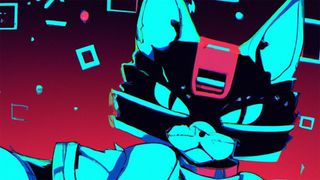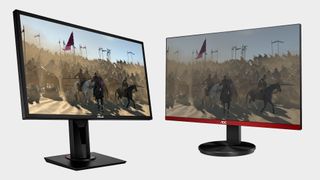Shutterstock to offer AI art tool to users and pay artists who helped train it
Shutterstock wants to help create AI images, while Getty Images has outright banned them.

The image library service, Shutterstock, has decided to fully adopt AI-generated art with a new partnership with OpenAI, the makers of popular AI image tool DALL-E 2.
The new partnership will allow customers to type in a request and instantly receive an image generated to match their request. Essentially, integrating the core OpenAI API into the Shutterstock platform, likely with some bespoke adjustments.
Customers will be able to use the tool sometime within "the coming months."
"The data we licensed from Shutterstock was critical to the training of DALL-E," says Sam Altman, OpenAI CEO. "We're excited for Shutterstock to offer DALL-E images to its customers as one of the first deployments through our API, and we look forward to future collaborations as artificial intelligence becomes an integral part of artists' creative workflows."
In return for helping out with the original training of DALL-E, Shutterstock contributors will receive compensation for their role in the development of the technology. Shutterstock also notes in its FAQ for the tool that it will "compensate all artists who were involved in the creation of each new piece of content."
Are these contributors unknowingly signing their own death warrant and being paid an amount to do so, or is that a gross overestimation of the abilities of AI art generation tools?
The data we licensed from Shutterstock was critical to the training of DALL-E.
Sam Altman, OpenAI CEO
I fall on the side of there will always be a place for human-made art. I'd like to think most would agree with that statement, too. However, it's impossible to deny the rapid increase in quality and ability of AI art generation tools. Those which have arrived due to increasingly impressive algorithms but also large human-made image sets.
PC Gamer Newsletter
Sign up to get the best content of the week, and great gaming deals, as picked by the editors.
Shutterstock's model, in which contributors are paid for their contribution to an AI-generated image, does sound at least fairer than the more common alternative: artists' images are scraped for use in a dataset without recompense. Yet it does draw into question copyright and image ownership.
AI-generated art is a massively expanding and growing technology, there's no doubt about that, but there have been doubts regarding the value we put on AI-generated images versus those created by artists, and whether these are in any way comparable.
The other hotly-debated point is regarding copyright for AI-generated art. These tools are trained on large datasets of images and how these datasets are obtained has become a point of concern. One artist actually found their own private medical record photographs within a popular AI training data set.
Major Shutterstock rival and image platform, Getty Images, has outright banned all AI art from its platform citing copyright concerns.
Speaking to The Verge, Getty Images CEO Craig Peters said of the decision: "There’s a lot of questions out there right now—about who owns the copyright to that material, about the rights that were leveraged to create that material—and we don’t want to put our customers into that legal risk area... There have been assertions that copyright is owned by x, y, z, by certain platforms, but I don’t think those questions have been answered."
"I think we’re watching some organizations and individuals and companies being reckless... I think the fact that these questions are not being addressed is the issue here. In some case, they’re just being thrown to the wayside. I think that’s dangerous. I don’t think it’s responsible. I think it could be illegal."

Best gaming monitor: Pixel-perfect panels for your PC
Best high refresh rate monitor: Screaming quick screens
Best 4K monitor for gaming: When only high-res will do
Best 4K TV for gaming: Big-screen 4K PC gaming
Shutterstock also does not allow AI-generated images to be uploaded by others to its platform, unless generated by the integrated OpenAI tool. That doesn't protect it entirely from copyright concerns, however.
In the FAQ for the service, Shutterstock asks users to not use AI art generated that may infringe on the intellectual property of others, such as using a recognisable trademark. It also says if you use the name of a celebrity, the tool is much more likely to actually depict that person using images in its image set, and asks users to not use these images for commercial use.
This was always going to become a divisive topic. Those companies at the forefront of digital image rights management, such as Shutterstock and Getty, now find themselves facing another fork in the road presented by AI image generation, and both are taking somewhat different paths. There's no simple resolution, ultimately, but I do expect to hear many challenges to these AI models for more years to come.

Jacob earned his first byline writing for his own tech blog. From there, he graduated to professionally breaking things as hardware writer at PCGamesN, and would go on to run the team as hardware editor. Since then he's joined PC Gamer's top staff as senior hardware editor, where he spends his days reporting on the latest developments in the technology and gaming industries and testing the newest PC components.
Most Popular



